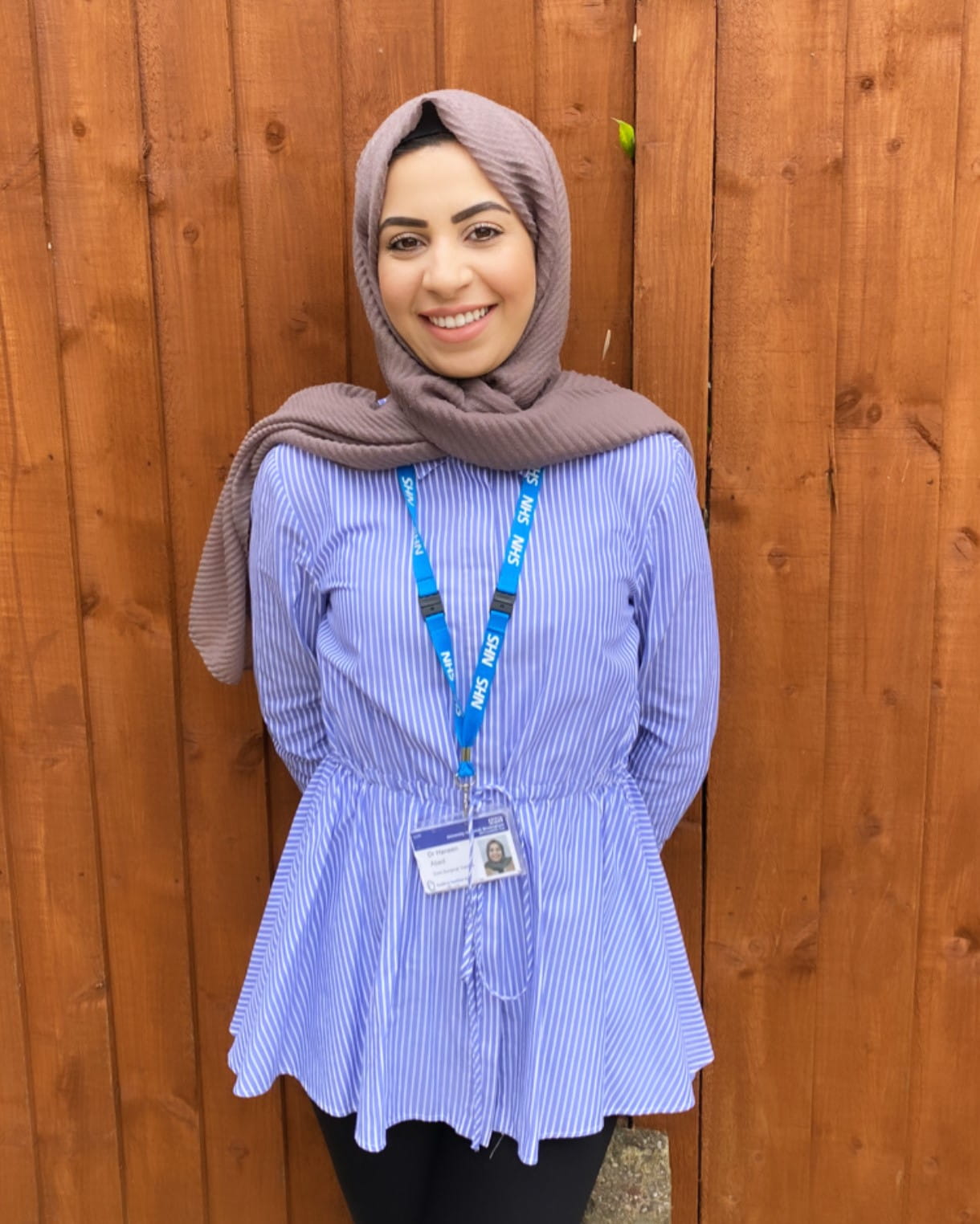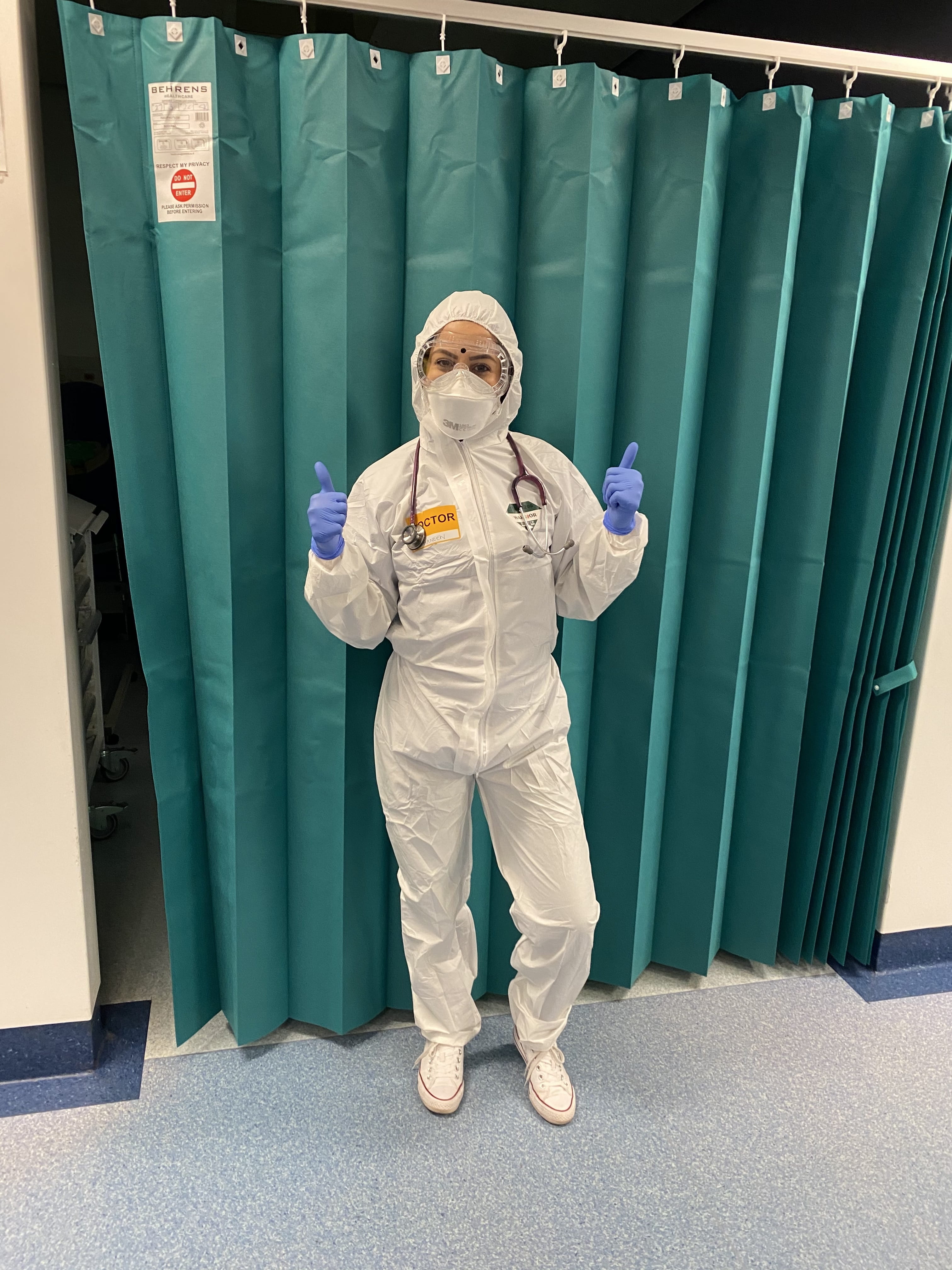A core surgical trainee's perspective on the COVID-19 pandemic

05 Aug 2020
Ms Haneen Abed
Ms Haneen Abed is a Core Surgical Trainee in the West Midlands, currently on her plastic surgery rotation at Queen Elizabeth Hospital, who was redeployed to the COVID-19 ward at the peak of the pandemic. In this blog series, she reflects on the changes she had to embrace with her team and the valuable lessons learnt.
As circumstances have arisen, an unexpected pandemic, impacting all countries internationally, caused a sudden drive within the medical profession to fight this exceedingly unpredictable virus. Being a Core Surgical Trainee, my energy has wholeheartedly been dedicated to learning how to become a surgeon, mastering the art of operating, managing the day-to-day acute surgical take and using my non-clinical time to reflect on my progress and how to succeed. This suddenly changed when surgical training was brought to a halt and I was redeployed to help the medical team manage COVID-19 suspected or COVID-19 positive patients. Here is a snippet of what it was like being redeployed alongside a team of plastic surgeons.
While feeling like a lifetime ago, medicine is not so much of a distant memory as I am in my first year of Core Surgical Training (CST) in comparison to some of my more senior colleagues. I had completed an acute medical job just over 12 months ago, where I was used to managing acute respiratory failures secondary to a multitude of causes: commonly, elderly patients with community- or hospital-acquired pneumonia or infective or non-infective exacerbations of chronic obstructive pulmonary disease. COVID-19, however, is a different ball game.
On a normal COVID day, we would have around 30-36 patients on what used to be our orthoplastics ward. We would do a board round and go through the patient list. Imagine a team of plastic surgery consultants, registrars and senior house officers (SHOs) discussing oxygen therapy, deranged arterial blood gases results, potential patients requiring intubation and do not attempt to resuscitate (DNAR) decisions. It was a long way from skin cancer lists and free flaps. Despite the circumstances, what was inspiring was the sense of teamwork that came with
COVID-19. There was an elimination of the concept of hierarchy, consultants were doing what would usually be deemed as SHO jobs and, at times, SHOs were leading the ward round. We were utilising the team’s strengths and using skill sets to our advantage, a particularly unprecedented character-building exercise.
Despite the positive twist, it would be wrong of me not to mention the emotional turmoil that COVID-19 has instigated. It is, and has been, a difficult experience for all, and will continue to be the case until this healthcare crisis officially concludes. As time passes, every healthcare worker will have a moment of sadness, be it a patient that touched their heart as they passed away without their loved ones nearby, a friend or family member who has been affected by COVID-19 or just the shift in focus that has changed the way we have functioned in our workplace environments. The psychological impacts are and will be vast, it is how we manage this that will see us through.
With hope, after this pandemic, it will be a time of reflection, a time to discuss what lessons we have acquired and applied. As a plastics department, we have tried to incorporate this concept of ‘lessons learnt’ when passing from team to team: we would send a message with nuggets of knowledge that we gained in the last four days on shift, be it a helpful medical registrar, a freshly stocked snack cupboard or just a well wish.
As I reflect on my time in redeployment, I feel incredibly grateful to have worked alongside some of the most inspiring clinicians. I have learnt how, despite the era of super-specialisation, we all have the ability to adapt our skills and no matter the level of seniority, we can all learn from each other. Growing up, watching people get injured in wars and conflicts has always given me the drive to train as a surgeon so that one day I can be of use and help in a humanitarian crisis. I feel that this pandemic has given me an insight into the importance of learning skills outside of our specialty, and that these acquired skills are invaluable.
'We were utilising the team’s strengths and using skill sets to our advantage, a particularly unprecedented character-building exercise.'
This blog is from our series COVID-19: views from the NHS frontline. If you would like to write a blog for us, please contact content@rcseng.ac.uk.

